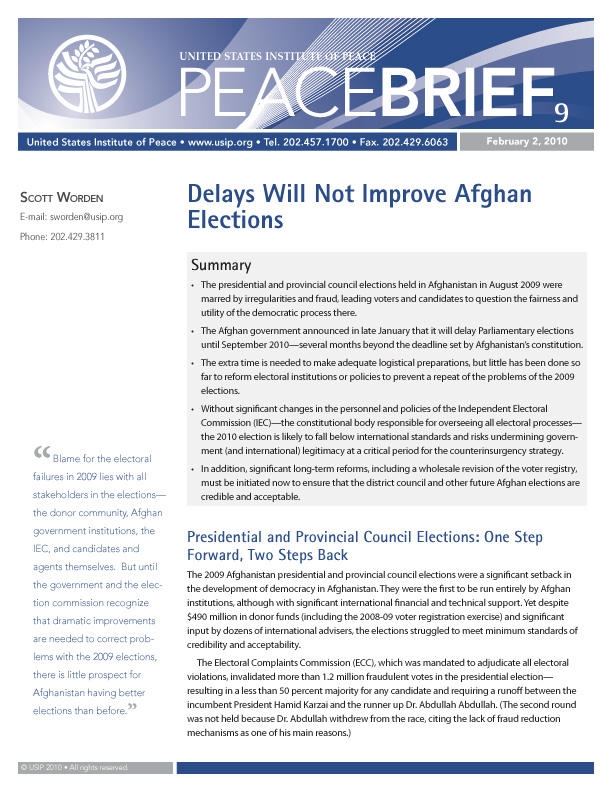Delays Will Not Improve Afghan Elections
The presidential and provincial council elections held in Afghanistan in August 2009 were marred by irregularities and fraud, leading voters and candidates to question the fairness and utility of the democratic process there. The Afghan government announced in late January that it will delay Parliamentary elections until September 2010--several months beyond the deadline set by Afghanistan’s constitution.

Summary
- The presidential and provincial council elections held in Afghanistan in August 2009 were marred by irregularities and fraud, leading voters and candidates to question the fairness and utility of the democratic process there.
- The Afghan government announced in late January that it will delay Parliamentary elections until September 2010--several months beyond the deadline set by Afghanistan’s constitution.
- The extra time is needed to make adequate logistical preparations, but little has been done so far to reform electoral institutions or policies to prevent a repeat of the problems of the 2009 elections.
- Without signi cant changes in the personnel and policies of the Independent Electoral Commission (IEC)--the constitutional body responsible for overseeing all electoral processes--the 2010 election is likely to fall below international standards and risks undermining government (and international) legitimacy at a critical period for the counterinsurgency strategy.
- In addition, signicant long-term reforms, including a wholesale revision of the voter registry, must be initiated now to ensure that the district council and other future Afghan elections are credible and acceptable.
About This Brief
Scott Worden is a senior rule of law adviser with the U.S. Institute of Peace, and recently served as one of three international commissioners appointed by the United Nations Special Representative to the Secretary General for Afghanistan to serve on the Electoral Complaints Commission (ECC) for the 2009 Afghan elections. The ECC was mandated to adjudicate all electoral disputes according to the Afghan electoral law. This report reflects the personal views of the author.



